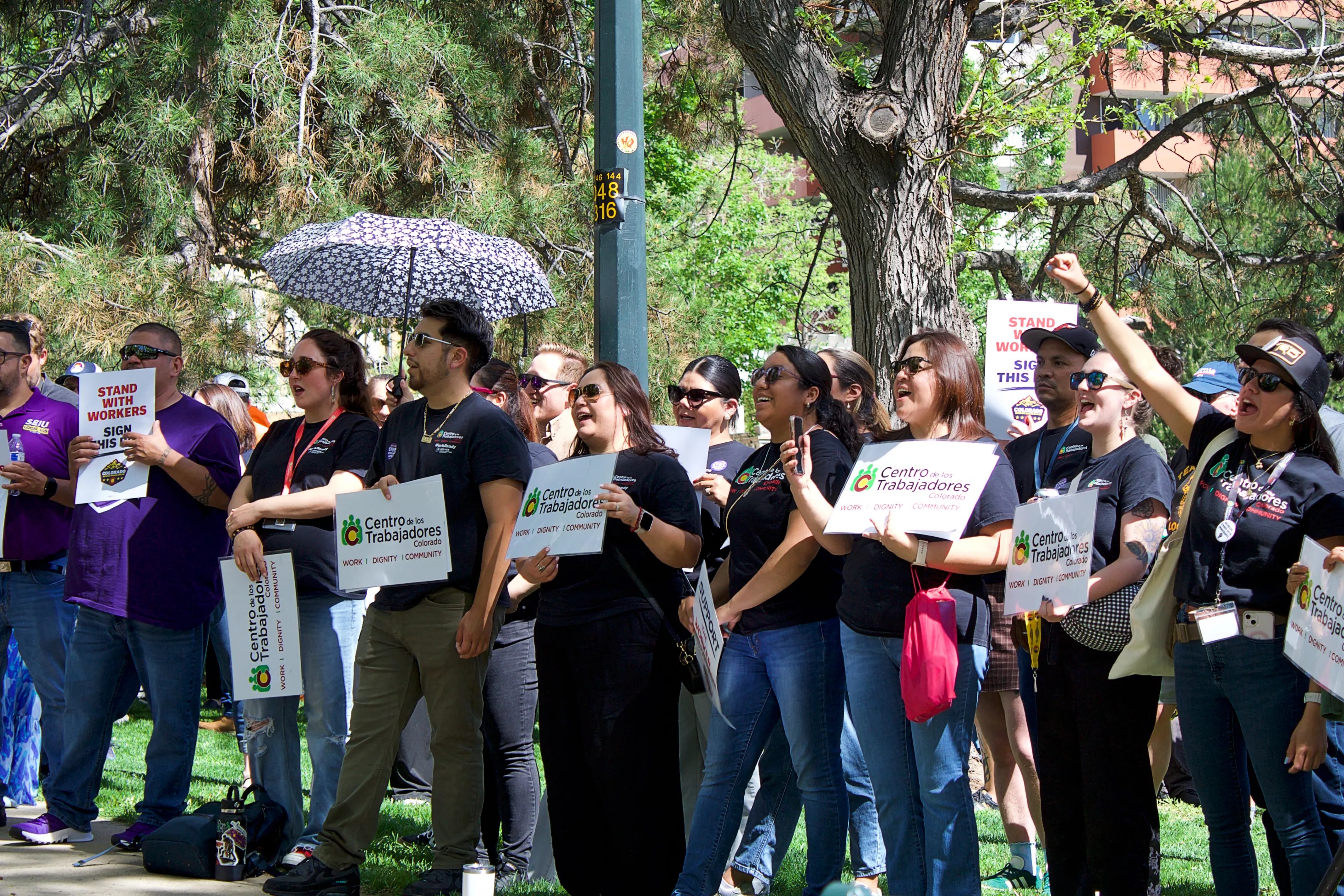
Hannah Metzger

Audio By Carbonatix
Competing political groups withdrew two labor union-related initiatives after they were cleared to start petitioning for Colorado’s 2026 ballot.
Initiative 39 disappeared from the Secretary of State’s initiative circulation list on July 29, three months before its petitioning deadline. If passed by voters, the proposal would have made Colorado a right-to-work state, prohibiting employers from requiring employees to join a labor union or pay union dues as a condition of employment.
The initiative’s representative, Jon Caldara, says he pulled it because a union-backed just-cause employment measure was also withdrawn. That proposal, Initiative 43, would have banned private employers from firing employees without establishing just cause, such as substandard performance, policy violations or economic circumstances impacting the employer.
“Since they backed off, we did too. De-escalation before nuclear war,” says Caldara, president of the Libertarian think tank, the Independence Institute.
Caldara also credits Governor Jared Polis’s veto of a bill to rewrite the Labor Peace Act as contributing to his decision. The bill – passed by state legislators in May, 65-34 – sought to ease the process of forming labor unions by eliminating a state requirement that unionized workers pass a second election to negotiate the provision of union contracts that address dues and fees.
Dennis Dougherty, representative for Initiative 43, says Polis’s veto is responsible for his initiative’s withdrawal, as well. The just-cause measure was backed by Colorado Worker Rights United, a coalition of workers and labor activists, which is now considering running several additional ballot measures in response to the veto.
“We are taking a step back and looking at all of the different things that are now open for us to run, given the veto,” says Dougherty, executive director of Colorado AFL-CIO. “We are trying to figure out what combination of ballot measures is going to provide the most protections to workers across Colorado. We are talking about multiple ballot measures.”
Dougherty says the just-cause measure may return in a new form, though “no decisions have been made.” He expects the coalition will bring forward its initiative proposals in early fall.
“We know we have time to do this, we want to make sure we do it the right way,” Dougherty adds.
If the just-cause initiative returns, Caldara says he will bring back his right-to-work initiative, as well: “We will re-file if needed,” he says.
Caldara’s proposal would add Colorado to a list of 26 right-to-work states that let employees choose whether to join a union, prohibiting union security agreements. While Colorado isn’t a right-to-work state, the unique restrictions of the Labor Peace Act have resulted in low union membership in the state. Colorado’s union membership rate was 8 percent in 2024, aligning with rates in several right-to-work states, including Alabama, Iowa, Kansas, Mississippi, Nebraska and Utah.
“People should never be forced to join an organization as a condition of employment, be it a union, the NRA, the KKK or the PTA,” Caldara says. “All Colorado government employees are protected from being forced to join a union. Private employees deserve the same protection.”
Dougherty says he is not concerned about the prospect of a right-to-work ballot measure, and he did not make any kind of deal with Caldara to withdraw the just-cause proposal.
“It’s not a part of the decision-making process on our side,” Dougherty says. “If push comes to shove, if there’s a right-to-work ballot initiative that’s filed because of what we put on the ballot, we feel confident we’re going to defeat it.”
Under the original just-cause initiative, employers would have needed to provide an employee with seven days notice and explain the ground for firing; employees fired without just cause could file a civil action within 180 days. If the proposal is brought back, Dougherty says it will be “modernized,” including provisions regarding the use of algorithms and artificial intelligence in the workforce.
Advocates have plenty of time to bring ballot measure proposals forward. In Colorado, during odd-year elections like in 2025, all statewide ballot measures legally have to relate to the Taxpayer’s Bill of Rights. So the labor union-related proposals must wait until 2026.
The deadline to submit initiative proposals for the November 2026 election is March 20, 2026. The last round of petitions are due on August 3.